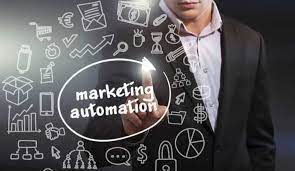Table of Contents:
- The Interplay between Marketing Automation and Customer Experience
- Streamlining Marketing Efforts with Automation
- Analysing Customer Data for Strategic Insights
- Enhancing Lead Nurturing and Conversion Rates
- Integrating Marketing Automation Across Multiple Channels
- Measuring Success: KPIs and Marketing Automation
- Challenges and Considerations in Adopting Marketing Automation
- Case Studies: Marketing Automation in Action
- The Future of Marketing Automation and Emerging Trends
Key Takeaways:
- Uncover the multifaceted impact of marketing automation on customer experiences.
- Learn tips to boost efficiency and productivity among marketing campaigns.
- Understand the role of strategic data analysis within automated marketing efforts.
In a world where tailored experiences and efficiency are kings, marketing automation has emerged as a quintessential tool for businesses eager to scale their marketing efforts while enhancing customer satisfaction. This ingenious approach does more than automate repetitive tasks; it enables businesses to carve tailored journeys for each customer, fostering a sense of uniqueness and appreciation that can significantly improve the customer experience.
The Interplay between Marketing Automation and Customer Experience
Nowadays, creating memorable customer experiences is not just about the quality of products or services but equally about how brands engage with their customers. Marketing automation revolutionizes this aspect by personalizing interactions to an unprecedented level. From remembering past purchases to suggesting new ones based on user behavior, these tools engender a form of dialogue that can transform a simple transaction into a longstanding relationship. Furthermore, automation platforms aid in managing and responding to customer inquiries in real-time, ensuring they feel heard and valued at every step.
Streamlining Marketing Efforts with Automation
Time is perpetually scarce when marketing and the pressure to perform is high. Automating tasks such as distributing emails, scheduling social media posts, and segmenting audiences relieve marketing teams from monotonous work. This newfound freedom allows marketers to allocate more time crafting innovative campaigns and engaging in more profound market research, enhancing their role’s strategic element.
Analysing Customer Data for Strategic Insights
Effective marketing goes beyond intuition; it is firmly rooted in data-driven insights. Marketing automation platforms shine in their capacity to sift through extensive datasets, identifying patterns and anomalies. This capability empowers businesses to tailor their marketing resources effectively, focusing on strategies that yield the best return on investment. Not only does this improve the efficiency of marketing campaigns, but it also ensures that customers are satisfied with relevant content, further refining their experience with the brand.
Enhancing Lead Nurturing and Conversion Rates
The journey from attracting leads to converting them into paying customers is delicate and multifaceted. Marketing automation is a trusted ally, providing consistent and relevant content at each stage of the buyer’s journey. By deploying automated triggers, businesses can ensure that potential customers receive timely follow-ups, gentle reminders, or additional information precisely when they are most responsive. This level of attentiveness often translates to higher conversion rates and a more robust bottom line.
Integrating Marketing Automation Across Multiple Channels
A unified message across multiple touchpoints is crucial, yet manually maintaining this consistency can be arduous. Marketing automation alleviates this burden by facilitating an integrated approach to messaging that keeps the brand’s voice harmonious, whether it’s through email, social media, or digital ads. Automating communications across these channels ensures a coherent brand experience and allows for more sophisticated attribution modeling, giving businesses more precise insights into which channels are driving results.
Reliable statistics underscore the importance of a consistent cross-channel strategy, with insights from leading analysts at Forrester highlighting how vital it is for brands to engage with consumers effectively across all platforms. This approach significantly elevates the overall customer experience, fostering loyalty and trust towards the brand.
Measuring Success: KPIs and Marketing Automation
With myriad marketing channels at their disposal, businesses need to understand the efficacy of each to optimize their efforts continuously. Marketing automation helps identify and measure key performance indicators crucial to the campaign’s success. By keeping a close watch on metrics such as lead generation rates, click-through rates, and marketing-qualified leads, businesses can finetune their approach and maximize the potential of their marketing strategies.
Challenges and Considerations in Adopting Marketing Automation
Despite the undeniable benefits, marketing automation can present challenges, particularly in aligning new systems with pre-existing infrastructures. The effectiveness of automation is contingent upon the data it is fed, which means inaccuracies in data input can lead to suboptimal outcomes. However, with a careful implementation plan and ongoing monitoring, the obstacles can become operational excellence, rendering the business more adaptive and resilient in a competitive landscape.
Case Studies: Marketing Automation in Action
Diving into case studies offers palpable evidence of the benefits of marketing automation. Companies across various sectors have witnessed a substantial uptick in customer engagement and satisfaction due to finetuned, automated marketing approaches. By analyzing the successes and learnings of these real-life applications, other businesses can grasp the tangible advantages of the intelligent deployment of marketing automation tools.
The Future of Marketing Automation and Emerging Trends
Looking ahead, the possibilities for marketing automation are boundless. Advances in artificial intelligence and predictive analytics are set to transform further how businesses anticipate consumer needs. By leveraging these technological leaps, marketing automation will predict customer behavior and craft responses in anticipation, engaging consumers in a conversation that seems almost clairvoyant. This is especially relevant in an era where personalization is crucial. A recent discourse by Salesforce delves into how businesses harness automation tools to predict and meet individual customer needs in real time, effectively bridging the divide between digital and personal.
